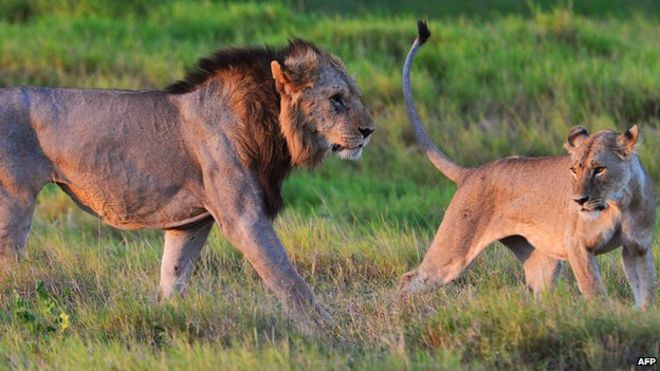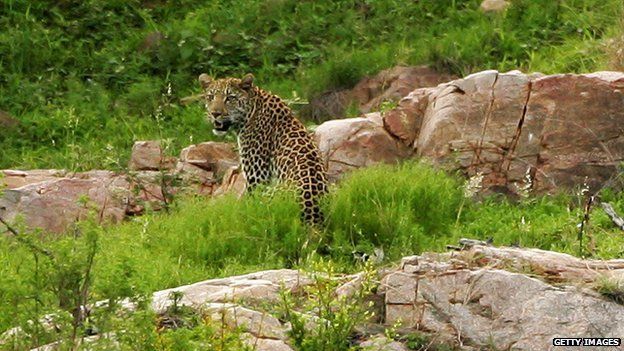- 7 hours ago

The answer is very clear - it is the need for foreign currency in order to fund sustainable wildlife programmes, which can be costly, and also to benefit local communities.
Trophy hunting is a multi-million dollar industry - a licence to shoot a lion can cost up to $25,000 (£15,000) in neighbouring countries.
Zambia's economy was built on the back of copper mining but now commodities are on a cyclical downward spiral. Consequently the country's currency, the kwacha, has lost a substantial amount of its value.
For this small country, tourism is another way of bringing in foreign currency.
There is no doubt that the beautiful banks of the Zambezi river in Livingstone and the Victoria Falls are still a draw card for international tourists but take a closer look at the numbers and it soon becomes clear that trophy hunters bring the lion's share of the greenback.
Different cats
Zambia's country director of the World Wildlife Fund Nyambe Nyambe told me that when the ban was initially announced back in 2013 "there were not enough monitoring systems in place."The government lifted the ban following expert recommendations which suggested that hunting resumption would "assist communities in affected areas with access to financial benefits," he said.
Mr Nyambe also explained that "concerns about the big cats conservation led to the ban in the first place and there is due recognition of the same as the ban is being lifted."
The authorities saw the need for a robust and implementable plan for leopards as well, as they have different needs to lions.

Mr Nyambe added: "We hope and trust that the hunting of big cats will be an integral part of sustainable harvesting of wildlife resources."
But critics say there is no justification for shooting majestic animals such as the elusive African leopard just so that wealthy hunters, largely from the West, can pose for photos with dead animals.
And there is one country on the continent that wants no part in the hunting of wildlife - Zambia's neighbour, Botswana.
It has an established tradition of "shoot with the camera not the gun."
Last week an American hunter paid $350,000 for a licence to shoot a black rhinoceros in Namibia.
Corey Knowlton, from Texas, killed the rhino with a high-powered rifle after a three-day hunt through the bush with government officials on hand to ensure he killed the correct animal, which had reportedly been chosen as it was old and had become aggressive.
Mr Knowlton, 36, won the right to shoot the rhino at an auction - attracting criticism, and even death threats, from conservationists.
His supporters argued that the money raised would be used to protect other rhinos - there are just 5,000 left in the world, 2,000 of which are in Namibia.
Zambia cannot be singled out for criticism because trophy hunting, albeit not always for endangered species or exotic animals, is allowed in many parts of the world including Europe and the US.
But to be fair to the international hunter, local communities also hunt animals for their own purposes - whether to eat or to protect their livestock from predators.
Animal rights groups hope that someday, in the not-too-distant future, there will come a time when the killing of wild animals will simply be outlawed.
source
No comments:
Post a Comment